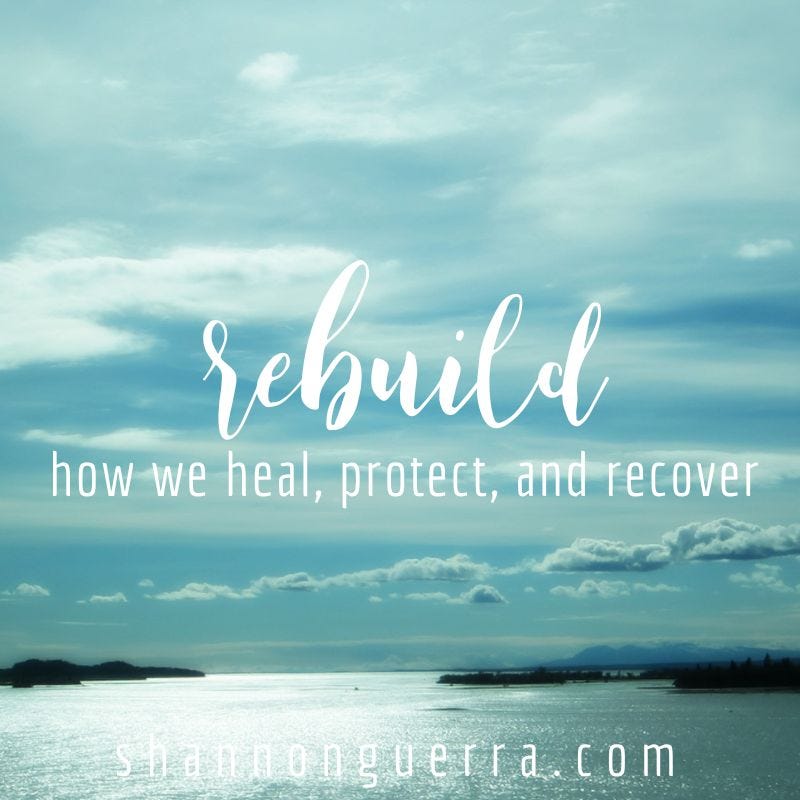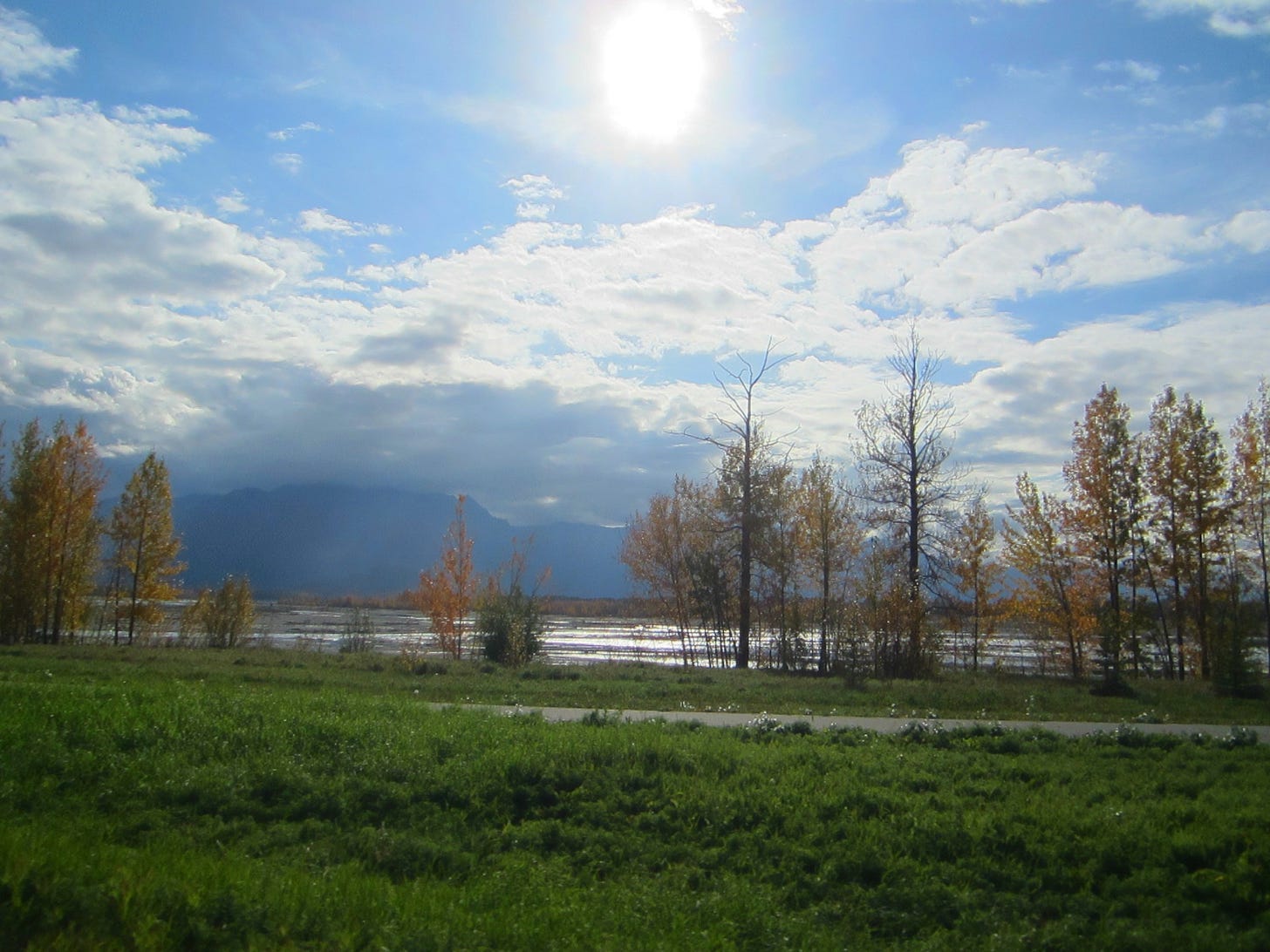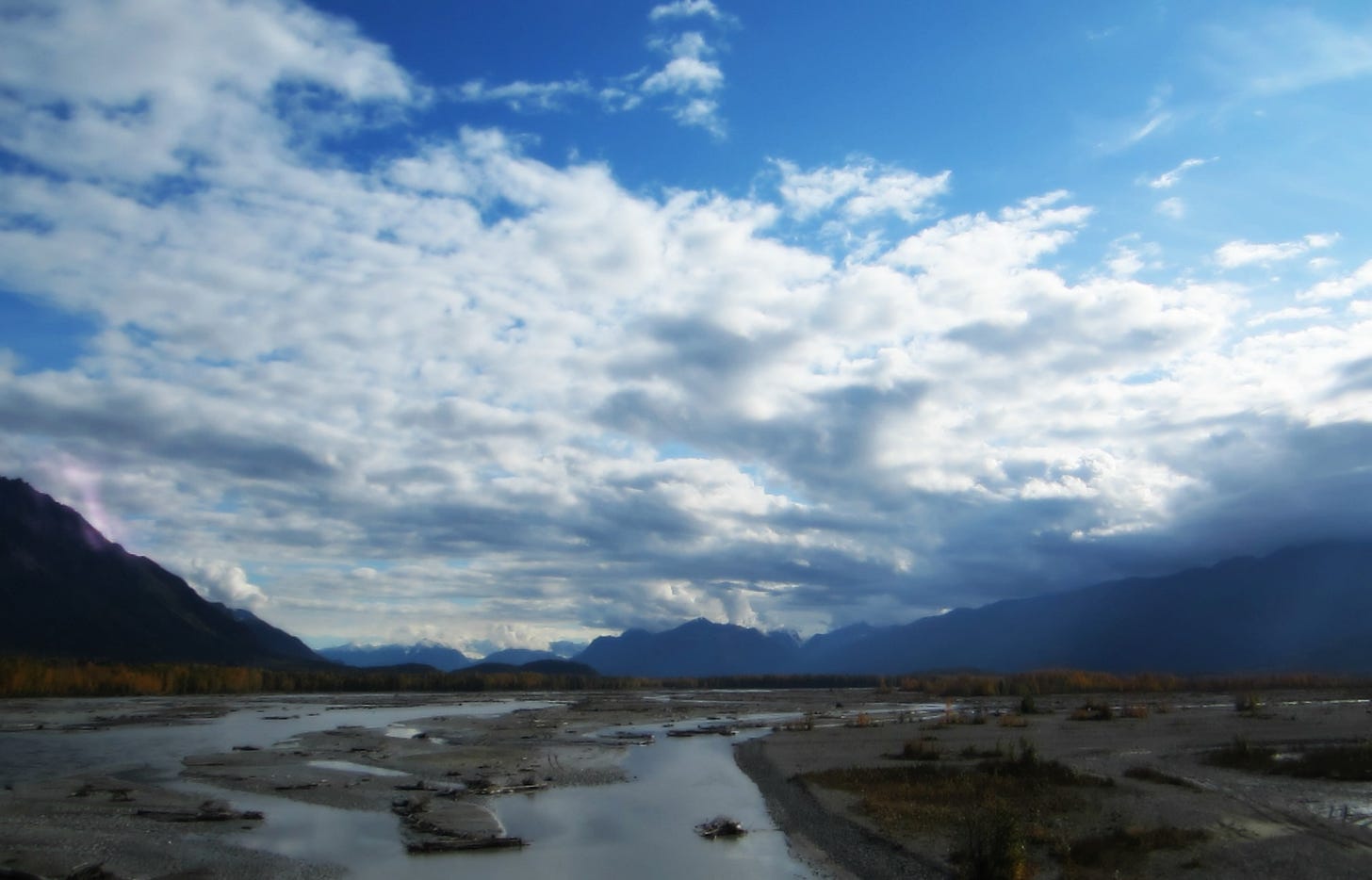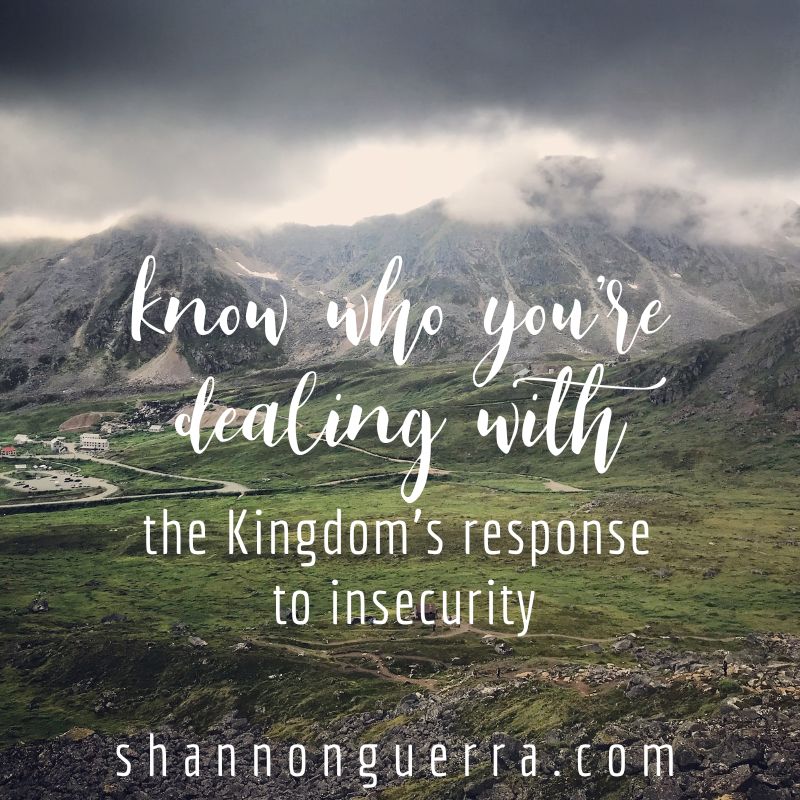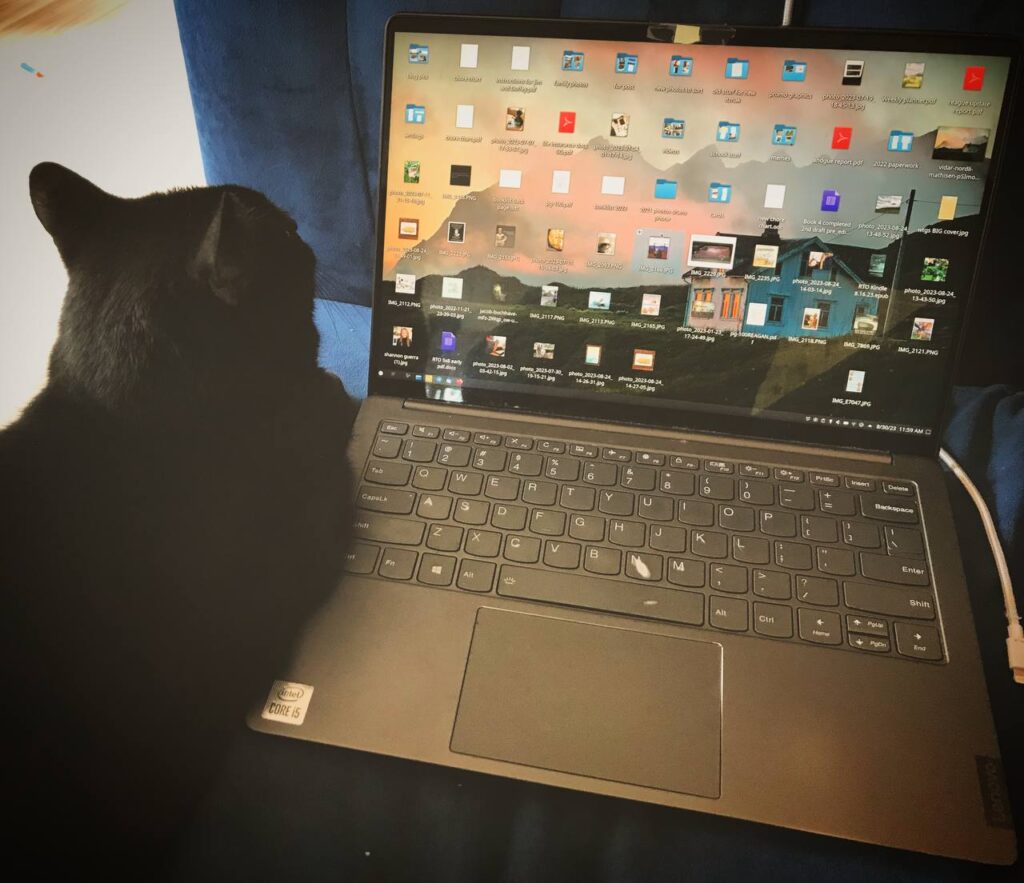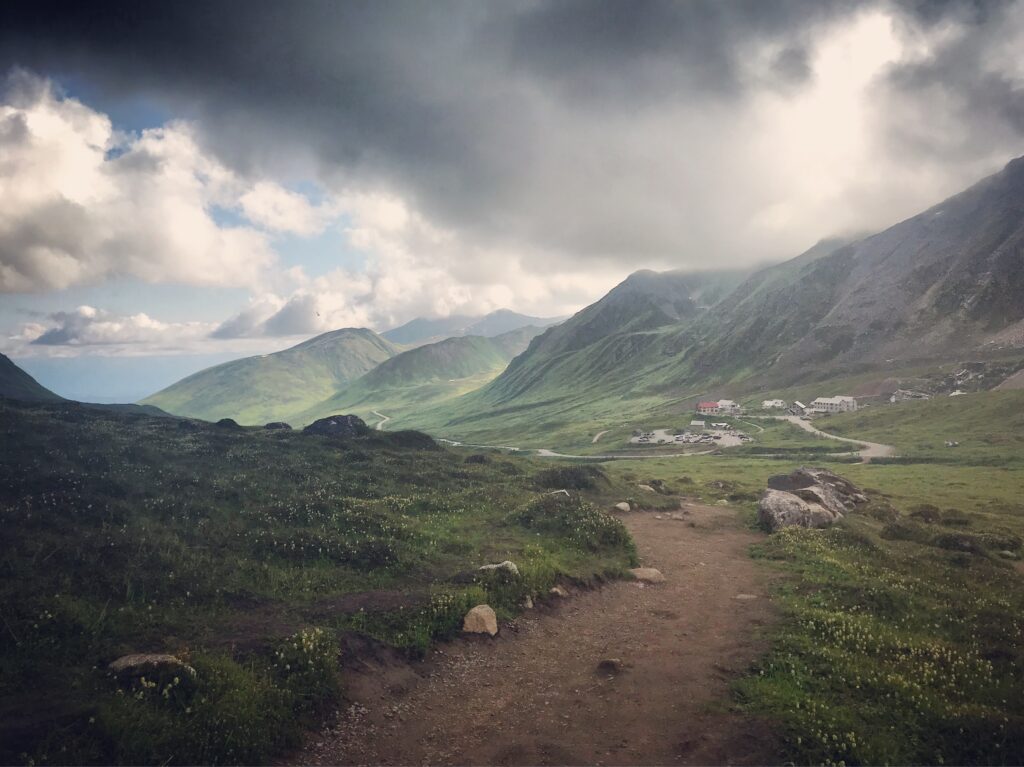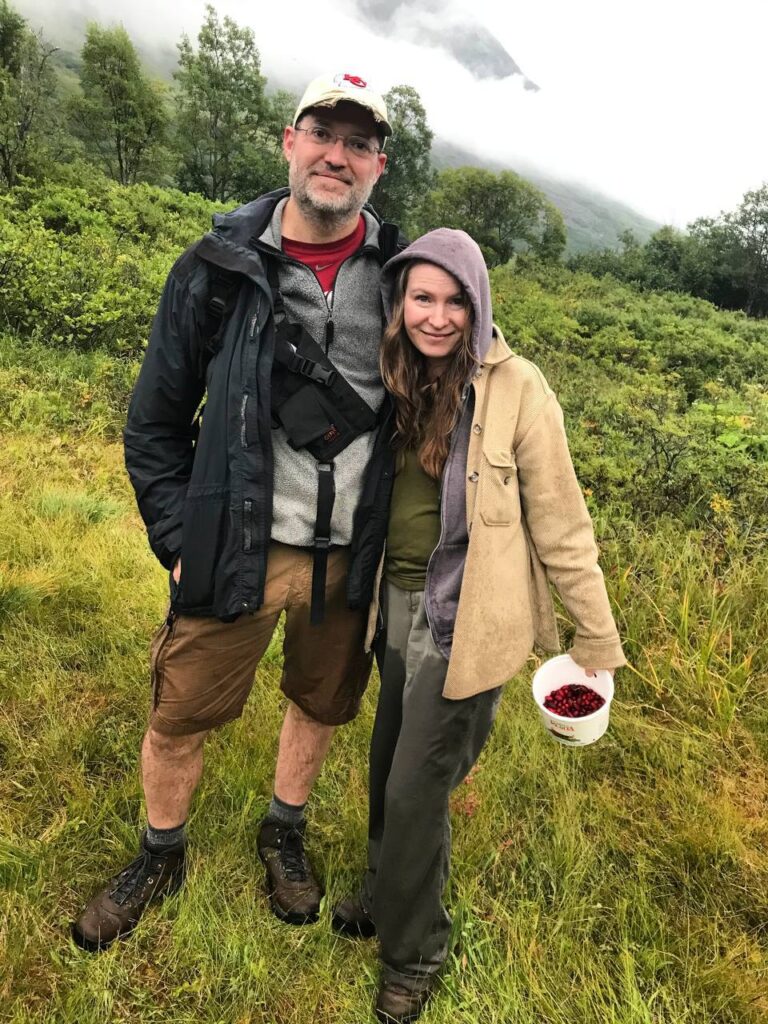Last month, that weird illness I mentioned a few posts ago blew through the Valley here and hit about two thirds of our family. So once we recovered from those fevers and aches and exhaustion, it seemed like the perfect time to expose the boys to the chicken pox and get that over with, too.
(Haha, cringe…but really, if you know, you know: It’s not sickness, it’s immunity.)

It was mild and they had great attitudes about it. But any illness can throw sleep schedules off, and for the first couple days we were up at all hours, and also sleeping at all hours: One morning up and doing at seven, another night still too awake to fall asleep before one.
So I stayed up long after Vin turned off his light, and read about General Washington’s attack on Trenton. You know, the famous one that proved Americans were lethal even at Christmastime: the crossing of the Delaware in the middle of the night, and the silent advance to catch the enemy off guard while they were still sleeping off their revelries.
Out in front, a company of Virginians led the way, men whose instructions were explicit. There could be no sound, no alarm given to whatever Hessian outposts might lie in their path.
– Jeff Shaara, The Glorious Cause
I quietly turned pages in the dim light. It was 1776 and I marched along with the bandaged feet in the snow, watching for enemy scouts, absolutely loving the gutsy strategy of our country’s forefathers.
Suddenly from his side of the bed, Vin snored loudly. I gave his pillow a push.
“Shh! We’re about to attack Trenton and you’re going to wake the Hessians!”
He mumbled an apology and rolled over, and I kept reading. He made this march years ago, but it’s new to me as I’ve been delving more and more into history. It’s been a fun switch, because as I’ve grabbed more of his history books, he’s been reading more of my psychology books, and that’s not something we planned; it just…somehow happened…which means the Holy Spirit is up to something.
I’ve also been reading Ezekiel, and he, too, is dealing with the sick and the scattered and the need to purge enemies from the land in a fight for freedom:
You have not strengthened the weak; you have not healed the sick; you have not bound up the injured; you have not brought back the strays; you have not sought the lost, but with force and harshness you have ruled them. So they were scattered because there was no shepherd, and scattered they became food for all the wild animals.
My sheep were scattered; they wandered over all the mountains and on every high hill; my sheep were scattered over all the face of the earth, with no one to search or seek for them.
– Ezekiel 34:4-6
What this looks like might be different in my community than yours, but often it looks like dark pockets of deep dysfunction. It goes far beyond immaturity and lack of education or church attendance. It looks like foolishness flaunted and depravity glorified, like whole swaths of people who need forgiven because they do not know what they do. They can’t see where they’re going and they don’t even know they are blind because the darkness is so familiar, and light is so foreign.
Also, in some of these same pockets, it looks like doctrine that’s only talked about on Sundays in voice tones that aren’t used the rest of the week. It looks like hidden magazines in the bottoms of closets, and religious books on display. It looks like awkward conversations with those who speak the name of Jesus freely and correctly because that Name usually only rolls off the tongue in all the wrong ways, and reverence on Tuesday feels out of place.
I don’t mean all that as one who looks down and condemns, but as one who looks back and remembers.
I was in junior high when I had the chicken pox. My most vivid memory of it, aside from the itching and fever, was reading (and rereading, multiple times) a book that had been newly released for my age group containing vivid depictions of bullying and suicide, complete with how-to instructions.
I think I got it from school; at least one adult in my life had read it and approved. And this was normal. If you, too, grew up in the secular 80s, you know how normalized certain things were that had no business being normal for kids.
So now we’re middle aged, with our own kids growing up in a culture that (still) needs shepherding.
And here’s the question that keeps me up at night lately: How do we strengthen the weak, and create an atmosphere of wholeness and healing? How do we remove the enemy from the land, bind up the injured, bring back the strays, and seek out the lost?
And really, this: How do we help the lost want to be found? Because if you know them, you know some who say they don’t want to be.
The more he thought about it, the more he saw that what they needed was the presence among them of holy men who would teach the ignorant, nurse the sick, comfort the sorrowful, and put the fear of hell fire into sinners like himself….
They taught the children, nursed the sick, converted the sinners, and praised God night and day.
– Elizabeth Goudge, Gentian Hill
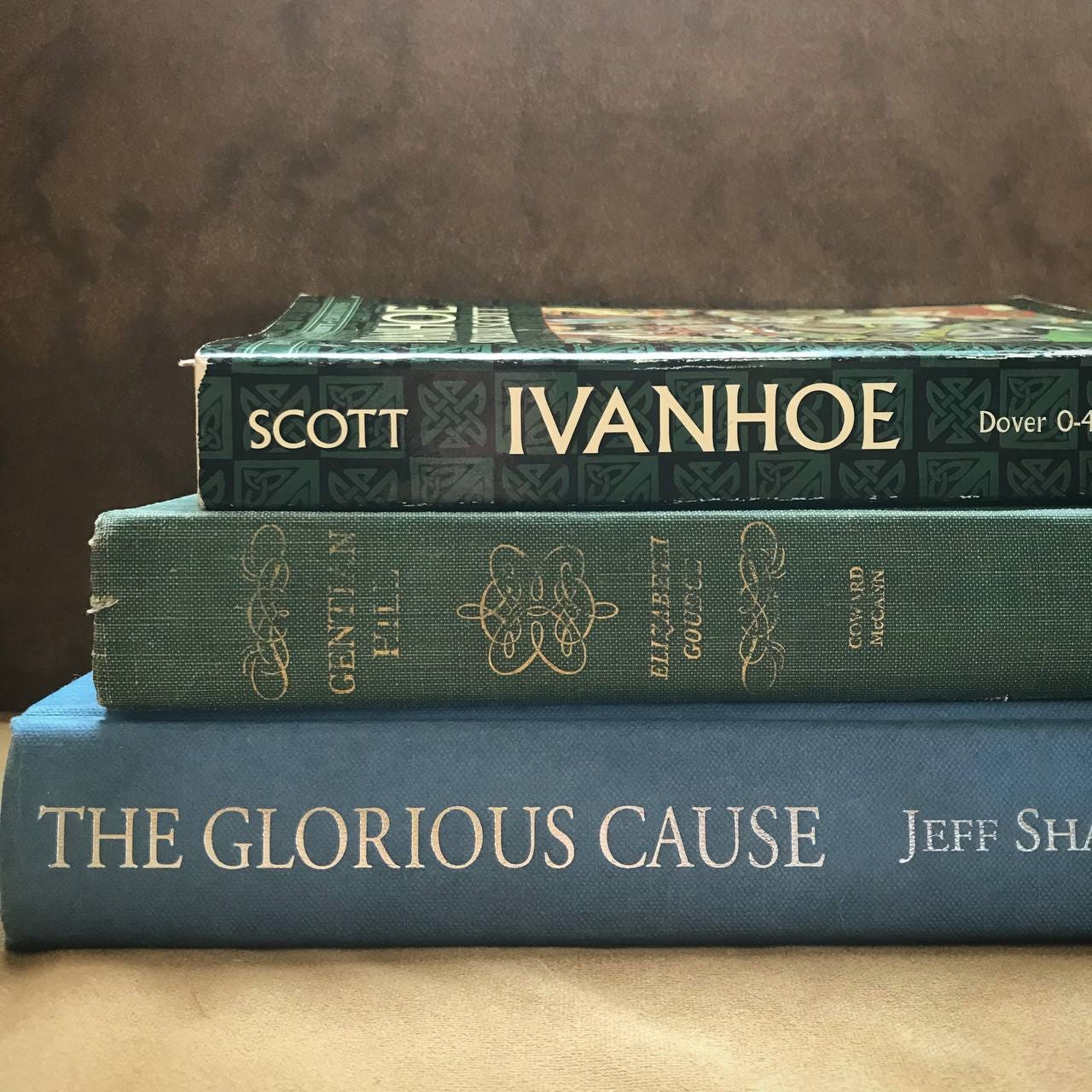
That’s another book I’m reading. It’s so good, about a small community living on the coast during a different war. The enemy is near, trying to invade their land, so they prepare, and watch, and drill.
And here we focus more on God’s nearness, but also, the more we’re in His presence, the more we have eyes to see the infiltration of the enemy. We steward our days differently when we know what we’re fighting for, and what we’re fighting against. Because we do not fight against flesh and blood, but often it’s flesh and blood that fights against us.
Somehow we need to love them toward healing while protecting the hearts involved, but also go after the real enemy who seeks to destroy us all.
So we advance silently, walking with their bandaged feet, remembering our own wounds that made us limp in the dark, too.
Strengthening the weak and healing the sick isn’t always about late night baths and checking temperatures. Sometimes it’s about doing the unexpected, learning something outside our wheelhouse, and making a preemptive attack before the enemy gets a chance to put his pants on.
And this is why the boys had chicken pox; it had been thirteen years since the last time we’d heard of a local case close enough to take advantage of it.
“It’s not because we want you to be sick,” I told the boys. “It’s because we want your body to have a chance to fight it.”
But as I spoke, I heard God telling me the same thing about some hard situations. I didn’t want you to be hurt; I want you to be protected, and trained up to withstand attacks.
And that looks like creating an atmosphere where healing thrives, where immunity is strong, where humility is revered, where attempts at entertaining sin and sickness are immediately confronted with the disinfectant of truth in love, and shown the door.
Yes, we allowed sickness in a small measure, but we also did all the things to quickly show it the door and create strong immunity: garlic, oregano oil, baths, tea, rest. (Also, um, tons of Super Mario…because, Gen X parents, yo.) Easiest chicken pox ever; the boys might be a little sad they can’t do it again.
And to create a culture of wholeness and healing, we have to do all the things here, too, to keep the enemy out: worship, pray, confess, repent, study, learn, and grow. We discuss hard issues and process them together. We cover with grace as much as possible and confront only when absolutely necessary. (But also, we listen to country music and dance in the kitchen and, um, play a lot of Super Mario lately.)
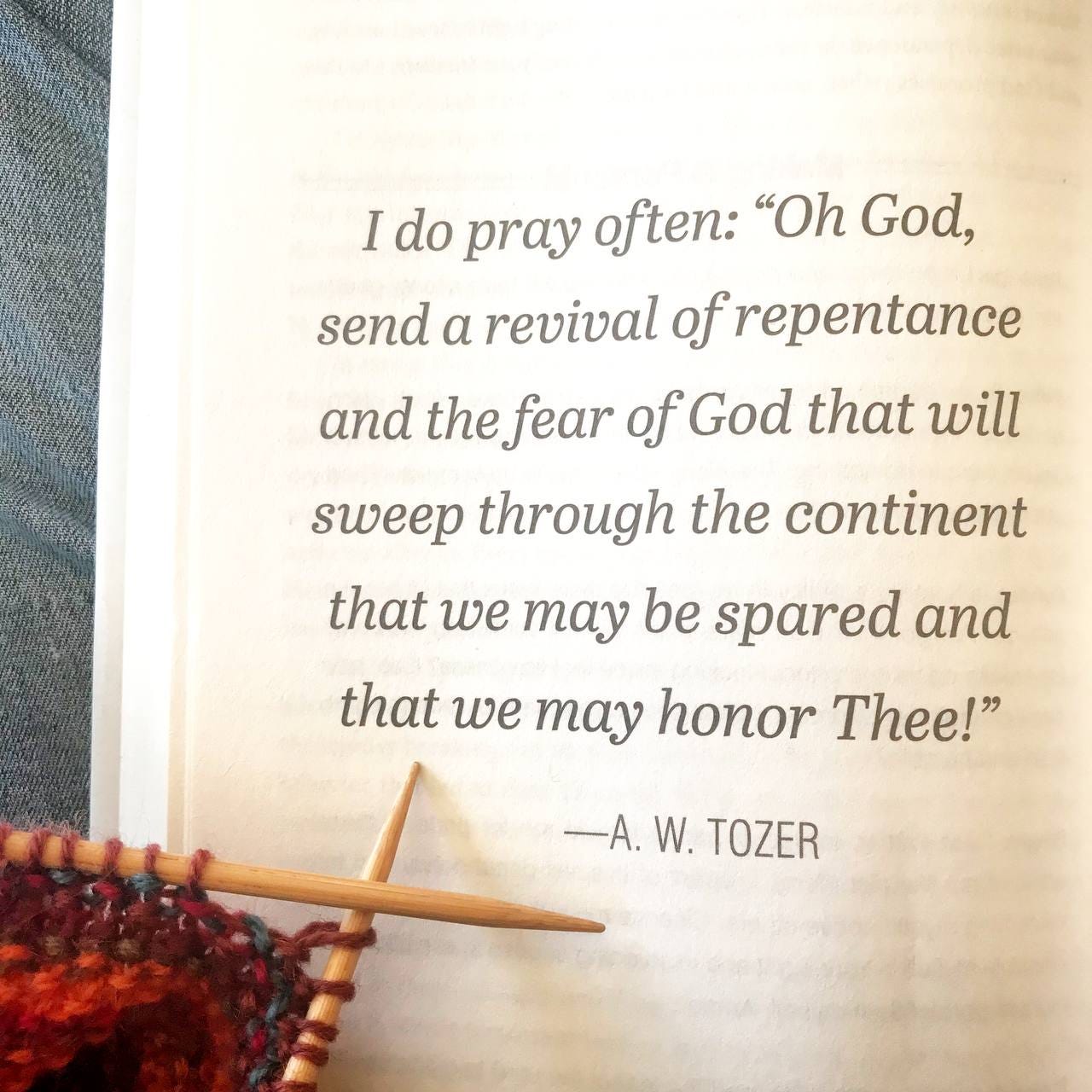
We are shepherding and stewarding. So it also looks like deciding what we do with our time, and deciding what’s not worth that time, and deciding how to work smarter and not harder by doing things at the right times and not the wrong ones.
For example, when you only have a few minutes before you need to get a kid out of the bath, it’s probably not the best time to peruse the internet for solace and spiritual enlightenment, but there I was one evening, doing it anyway.
I scrolled to a 1-minute video that a friend shared, and a somber voice slowly intoned, “Dear Lord, I’m sorry for my impatience–”
…and I immediately clicked the X to close it.
Oh, the irony: No time for that, too busy, no thanks. Sad but true.
But also, I wasn’t just being impatient; I was prioritizing. An atmosphere of healing does not thrive in unjust condemnation, or inauthentic confession, or in watching gloomy videos when what we really need is a few funny cat memes before wrapping kids in towels and getting them to bed.
During the day, I still fight Bingley for desk space because he wants to lay across my arms while I write – which works while I’m typing (sort of) but not at all when I’m writing by hand.
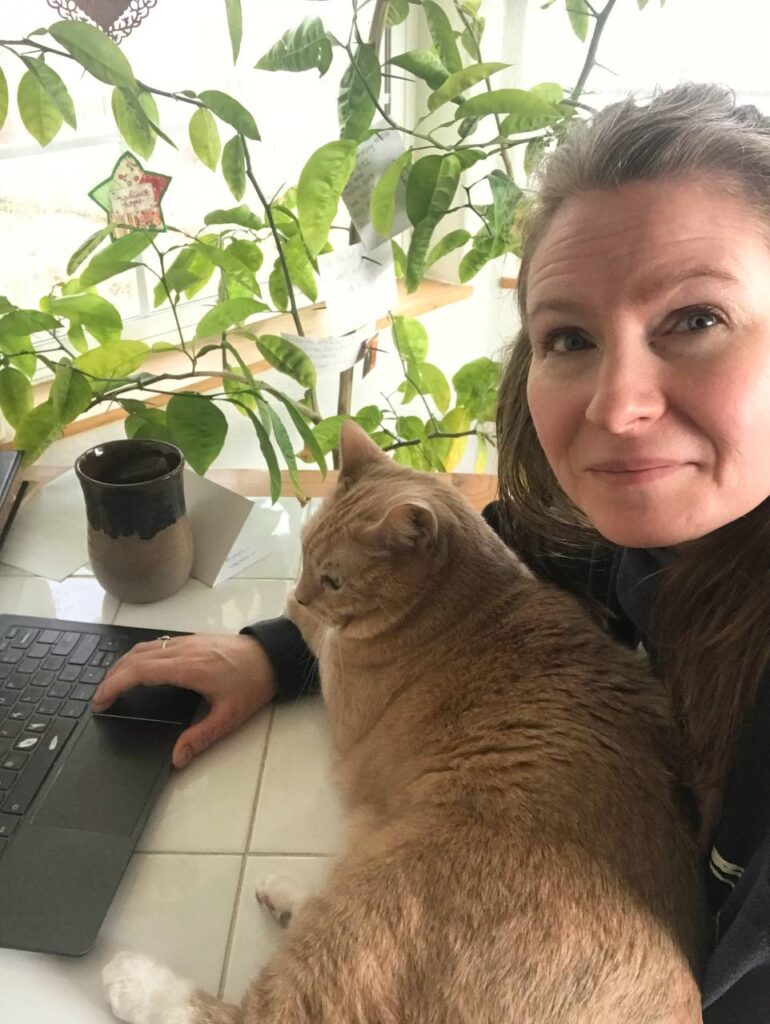
When I don’t have words for anything else, I usually journal. And when that’s done and I still don’t have words for the project in progress, the last resort is to get up and do something else. This is why writers snack too much and end the day with dirty dishes and mugs all over the desk, like a college student perpetually in finals week.
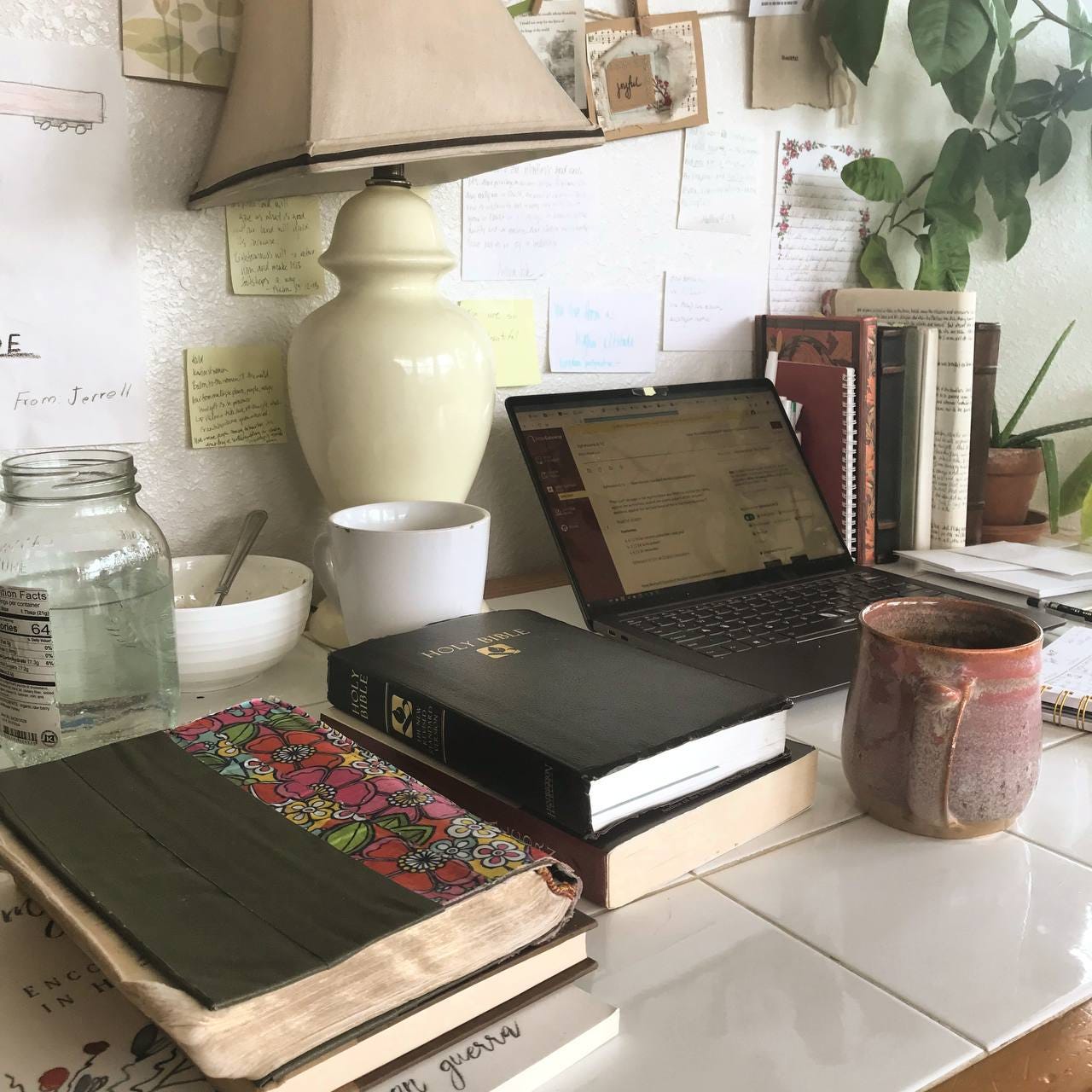
Aside from all those dishes, though, were piles of papers that have accumulated for months – lists, notes for projects, cards and letters from a friend who’s much better at correspondence than I am. I need a file for those.
So I went to the shelf where the file folders are, and found one that looked empty, and behold…more papers.
Sigh. Story of my life.
These papers were more of the same. An old bookmark, old notes, another card from a friend. But also, look at this: these quotes I copied on scrap paper in painful handwriting years ago – and instead of writing the title of the book (which would’ve been helpful) I wrote the page number instead. I must’ve thought I’d remember the title, and clearly didn’t.
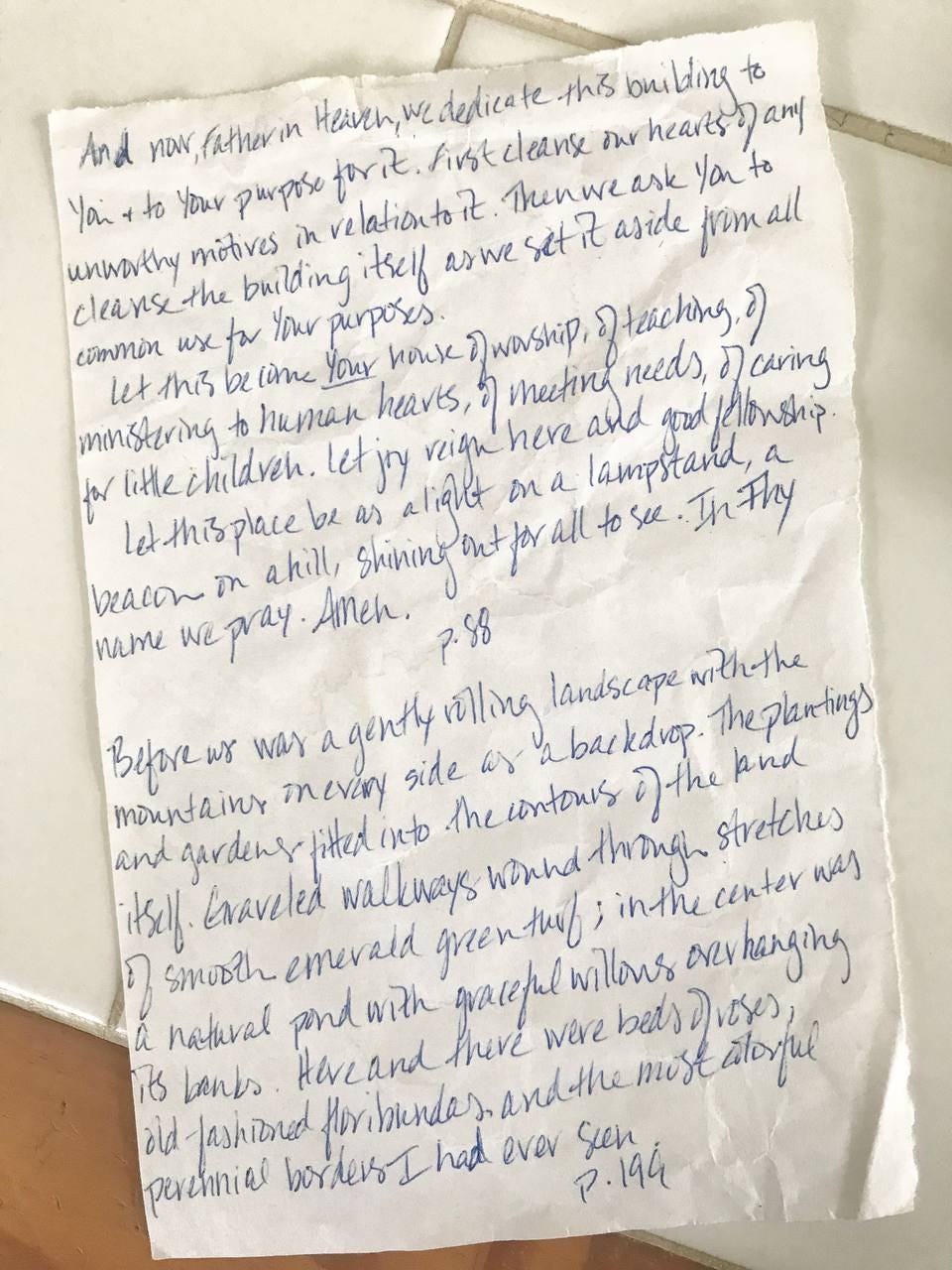
But it, too, has words for us here (and if you know the book they’re from, please tell me because I’ve scoured our shelves and the internet, and haven’t found it yet):
…cleanse our hearts of any unworthy motives…Let this become Your house of worship, of teaching, of ministering to human hearts, of meeting needs, of caring for little children. Let joy reign here and good fellowship.
Let this place be as a light on a lampstand, a beacon on a hill, shining out for all to see.
Again, the Spirit is up to something, making sure I’m paying attention, helping us find what we didn’t know to look for: Our hearts need cleansed, our spaces need dedicated, our purpose needs to be clear and remembered.
None of those are easy things. The simplest of them can bring us to our knees as we realize God has promoted us to the level of our incompetence so we recognize we can’t do anything without Him.
But we are present with this here, right now — you reading this, me typing this — and that is how we steward all the moments in our days, because stewardship is caring for what’s right in front of us, within reach, not distracted with other obligations and possibilities and needs.
It is my attention to my family, and my heart, and my attitude toward others, and all these relationships in the spheres around me. It is my efforts put toward the projects on this laptop, and that stack of books, and this student, and that client. It is this home, and this day, and the lesson I need to drive the kids to, and the hour I will spend there, working and waiting.
It is a million things, but it can’t be a to-do list or religious compulsion. It has to look like connection, and awareness, and Kingdom culture, instead.
We’re not showy about it, we don’t need to wake the Hessians. We take care of maintenance so we’re ready when a need arises; we have to steward well so we have wide margins that allow for freedom and power. Because the Spirit is up to something, creating an atmosphere of healing, wholeness, restoration, and strength. We make our silent advance — not in attacking, but in liberating — as we follow His promptings throughout the march.
P.S. Want these emails straight to your inbox? Subscribe here. Thanks so much for supporting this work; your subscription helps us share wholeness far and wide.
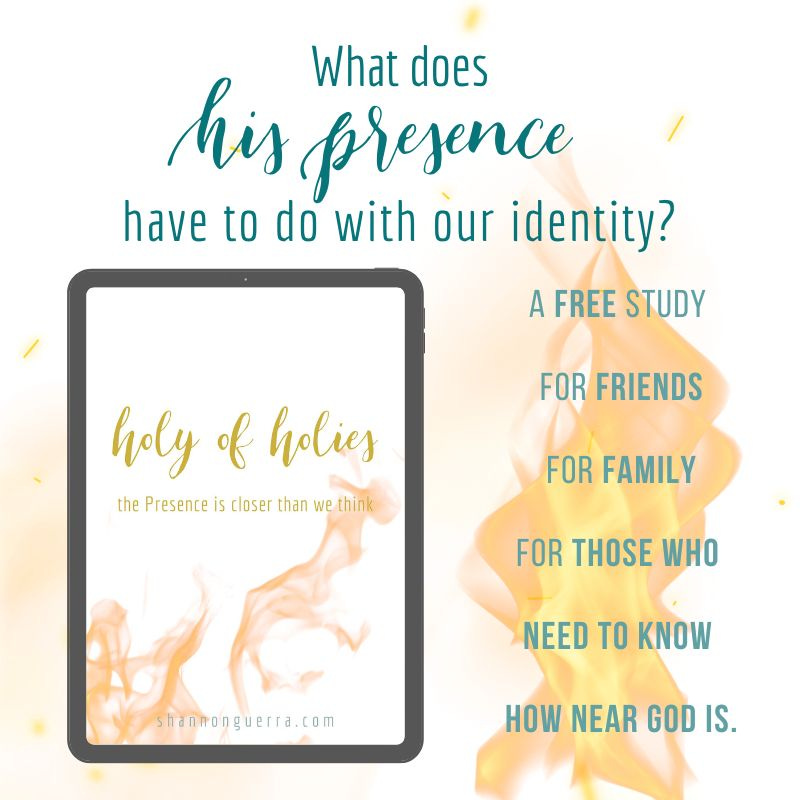
P.P.S. Remember when we talked about the Holy of Holies, and how we each hold the Temple within us, so caring for the Body becomes a sacred thing? I created a short study out of that, and it’s a free download. You may print and share as many as you need (it’s 11 pages) with your family, friends, kids, small group, etc. Right here:

